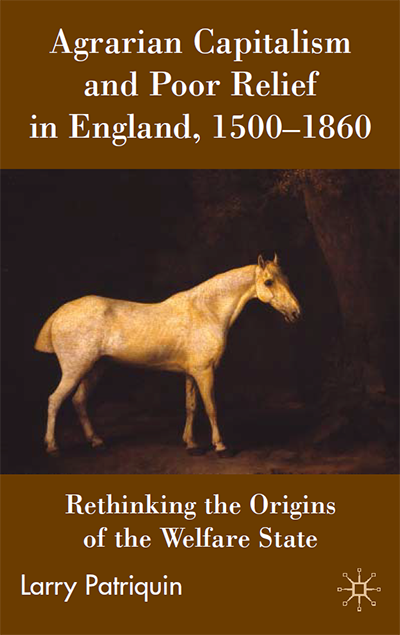Basingstoke: Palgrave Macmillan, 2007. 254 pp.

This book examines the creation of a system of public assistance for the poor in England from the late medieval era to the Industrial Revolution. Placing poor relief in the context of the unprecedented class relations of agrarian capitalism and the rise of a unique state, it accounts for why relief in England was distinct, with comparisons made to Scotland, Ireland, France, and Germany.
The main argument made is that English poor relief was a substitute for access to land and common rights, a virtual exchange of money as compensation for the creation of absolute private property. Agrarian Capitalism offers a new explanation of the “great transformation,” contributing to debates in British history, social welfare, theories of the state, and the transition to capitalism.

… provocative. … [it is] an attention-grabbing, stimulating work. Its attempt to question our long-held assumptions as to what we conceive to be the origins of the welfare state are timely and welcome. …Whilst Agrarian Capitalism will be an invaluable resource for all students of social policy and history, it is for its approach to placing welfare within broader economic and societal processes that Patriquin’s efforts are most refreshing. It will certainly provoke discussion amongst everyone interested in the beginnings of statutory welfare provision and hopefully help to shake up – and out – those “Whiggish” interpretations of the “development” of welfare states which continue to be written.
Samantha A. Shave
Cultural and Social History